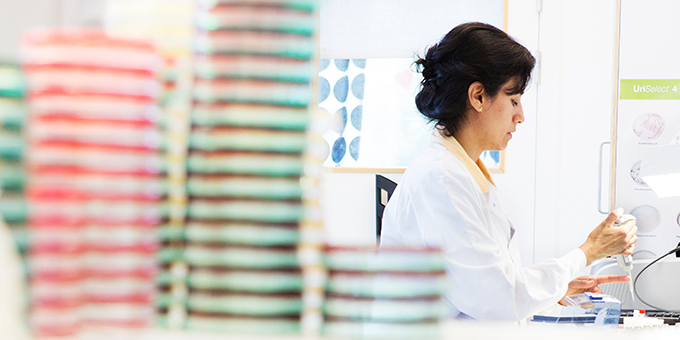For some laboratories, accreditation is a legal requirement. This applies, for example, to laboratories analyzing drinking water, wastewater, food, and drug tests for the workplace.
In many other areas, laboratories may be accredited on a voluntary basis to obtain an independent proof of their competence. In this context, accreditation serves as a quality guarantee.
Laboratory activities can be categorized into three types: calibration, testing, and sampling. These activities can be performed inside the laboratory but also on-site with clients or in the field. Sampling can only be accredited if the purpose is for the sample to be calibrated or tested later. A laboratory is accredited for specific methods. The scope is detailed in an accreditation decision. A laboratory can only be accredited for methods for which it has competence and resources.
The standard ISO/IEC 17025 applies to all types of laboratories. It is industry-independent and covers requirements for calibration, testing, and sampling. The standard ISO 15189 is specifically for the accreditation of testing and sampling in medical laboratories.
Requirements and guidance documents - Testing
Requirements to be met for accreditation to be granted:
- SS-EN ISO/IEC 17025:2018 | General Requirements for the Competence of Testing and Calibration Laboratories (ISO/IEC 17025:2017)
- STAFS 2020:1 | Swedac’s Regulations and General Guidelines Accreditation
Instructions and guidelines for meeting accreditation requirements:
- EA-4/02 M:2022 | Evaluation of the Uncertainty of Measurement in Calibration
- EA-4/18 G:2021 | Guidance on the Level and Frequency of Proficiency Testing Participation
- EA-4/21 INF:2018 | Guidelines for the Assessment of the Appropriateness of Small Interlaboratory Comparisons within the Process of Laboratory Accreditation
- ILAC G24:2022 | Guidelines for the Determination of Recalibration Intervals of Measuring Equipment
- ILAC G8:09/2019 | Guidelines on Decision Rules and Statement of Conformity
- SWEDAC DOC 01:14 | Assessment of Quality Systems in an Electronic Environment
- SWEDAC DOC 03:9 | Swedac’s Policy on Flexible Scope Accreditation
- SWEDAC DOC 04:2 | Swedac’s Policy for Metrological Traceability, Calibration, and Measurement Uncertainty
- SWEDAC DOC 05:6 | Internal Audits – Guidance for Laboratories and Inspection Bodies
- SWEDAC DOC 06:9 | Swedac’s Policy for the Participation of Accredited Laboratories and Inspection Bodies in Proficiency Testing
- SWEDAC DOC 10:5 | Guidance for Information Security Work
- SWEDAC DOC 12:7 | Guidance on the Use of Scales in Testing Laboratories and Inspection Bodies
- SWEDAC DOC 20:1 | Swedac’s Policy for Referencing Accreditation

